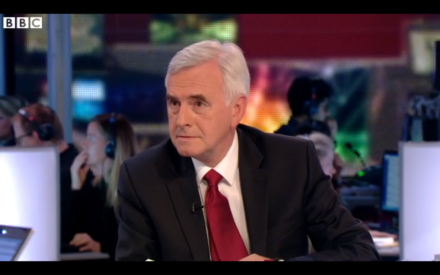
This is one of a series of articles to mark Shared Economy, Shared Power, the Co-operative Party annual conference which runs from Friday 9 September to Sunday 11 September in Cardiff.
I want to pay tribute to the Co-operative Party which is now 99 years old and looking forward to its century next year. The Co-operative Party have partnered with the Labour Party through thick and thin since our electoral pact in 1927, and it is our unity as a movement that has always been our strength.
We are at a turning point, the Leave vote shows us that the status quo is no longer an option. The despair that helped fuel the vote to Leave was driven by a deep disaffection with the political process, with successive governments relying on an economic model that concentrated too much wealth in too few places and in too few hands. It was this model that spectacularly blew up in the crash of 2008, and whose consequences we are still living with.
But we have to recognise that if our solution to the crisis today is to pretend the clock can be turned back, we will fail. Since the Second World War, the Left has been dominated by a strategy that has stressed the importance of central government, and which has rested on our capacity to win control of the state, to oversee growth and to then redistribute the proceeds.
For 70 years, through Old Labour and New, this fundamental model of social democracy held, forming the foundations of some of our greatest successes, from the NHS to Sure Start centres.
That model now seems to have come to an end, with the IMF, in its latest forecasts, downgrading expectations for economic growth in the developed world. At the same time, we know that real hourly wages have fallen 10 per cent in this country since the crash – a worse performance than any other OECD member, except for Greece.
It’s time for a different approach.
There’s a growing consensus, in these times of economic uncertainty and faltering economies, that public investment is essential to delivering prosperity. While this government still intends to cut public investment in real terms over the next few years, we have proposed a £500bn investment programme, backed up with a National Investment Bank and a network of regional development banks. This will deliver the necessary funding to enable every part of our country and every person to reach their full potential.
With UK productivity now lagging further and further behind the US, Germany, and France, it’s time to turn the corner on the model of economic growth that promotes low-paid, insecure work in huge quantities – a model that has seen the number of zero hour contracts rise by 20 per cent in the last year alone.
By giving people a stake in the companies they work for and spreading the ownership of those companies, we can start to change that model. That’s why I’ve argued for a Right to Own for employees. If a company is facing a change of ownership or closure, they should have first refusal on forming an alternative employee-owned business plan, backed up by financing from the new regional development banks.
It’s time to look to the examples of Germany and the US and elsewhere, where co-operatives form a major part of how their economies operate.
I want to see the next Labour government put in place measures that will at least double the size of our co-operative sector, giving a nearly £40bn boost to the whole economy. We’d look to introduce legislation to assist the formation of mutual guarantee societies, mobilising funds for small businesses by enabling them to club together to raise credit. With over 8 per cent of lending to SMEs across Europe made through mutual guarantee societies, we can end the starvation of funding for our small businesses here.
And so, it is clear that as we rebuild our economy around fairness and stability, it is clear that co-operative enterprises and worker-owned businesses will have a key part to play. Twice as many co-operatives survive the crucial first five years as other businesses, while those owned by their workers enjoy a clear productivity advantage.
So that is why after this conference season is over, we will begin a major piece of work on developing the co-operative economy.



More from LabourList
Key local council elections to watch for clues on our general election chances
Andy Burnham manifesto: Greater Manchester mayor reveals three key election pledges in bid for third term
‘Labour should grasp the chance to secure EU visa deal for young workers’